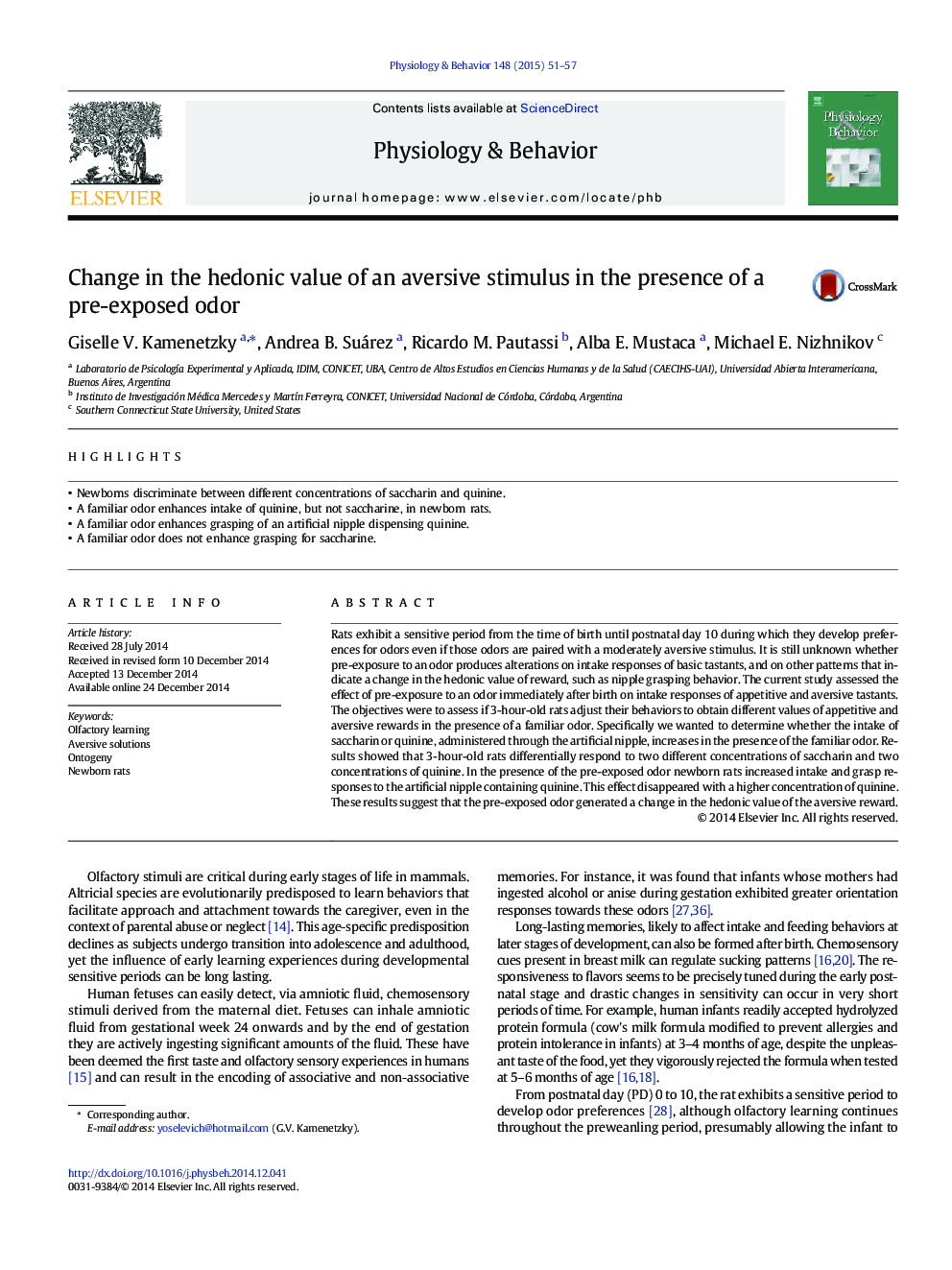| کد مقاله | کد نشریه | سال انتشار | مقاله انگلیسی | نسخه تمام متن |
|---|---|---|---|---|
| 2844093 | 1571169 | 2015 | 7 صفحه PDF | دانلود رایگان |
• Newborns discriminate between different concentrations of saccharin and quinine.
• A familiar odor enhances intake of quinine, but not saccharine, in newborn rats.
• A familiar odor enhances grasping of an artificial nipple dispensing quinine.
• A familiar odor does not enhance grasping for saccharine.
Rats exhibit a sensitive period from the time of birth until postnatal day 10 during which they develop preferences for odors even if those odors are paired with a moderately aversive stimulus. It is still unknown whether pre-exposure to an odor produces alterations on intake responses of basic tastants, and on other patterns that indicate a change in the hedonic value of reward, such as nipple grasping behavior. The current study assessed the effect of pre-exposure to an odor immediately after birth on intake responses of appetitive and aversive tastants. The objectives were to assess if 3-hour-old rats adjust their behaviors to obtain different values of appetitive and aversive rewards in the presence of a familiar odor. Specifically we wanted to determine whether the intake of saccharin or quinine, administered through the artificial nipple, increases in the presence of the familiar odor. Results showed that 3-hour-old rats differentially respond to two different concentrations of saccharin and two concentrations of quinine. In the presence of the pre-exposed odor newborn rats increased intake and grasp responses to the artificial nipple containing quinine. This effect disappeared with a higher concentration of quinine. These results suggest that the pre-exposed odor generated a change in the hedonic value of the aversive reward.
Journal: Physiology & Behavior - Volume 148, 1 September 2015, Pages 51–57
